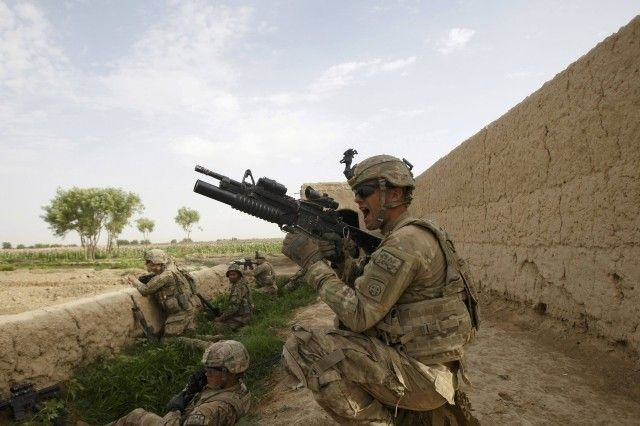Could Military Draft Registration In The United States Come To An End?

A bipartisan duo of congressmen have decided that it’s time for the military draft registration system known as Selective Service to come to an end.
According to the Associated Press, Reps. Peter DeFazio, D-Ore., and Mike Coffman, R-Colo., are making an attempt to abolish the Selective Service System, which has ever since World War II required American males to register when they turn 18 for a possible draft, even though there hasn't been one since 1973.
By law, eligible U.S. residents (meaning the vast majority of male citizens and legal non-citizens) must register for the service within 30 days of their 18th birthday and provide the agency with notification of changes to any information required for registration, including a change of address.
Failure to register with the Selective Service can result in a fine of up to $250,000. Other consequences such as loss of college financial aid and denial of employment by the government are also possible. Women are not required to register with the draft registration system.
If a draft were to happen, the Selective Service would immediately begin mobilizing up to 17 million potential draftees. More than 11,000 volunteers would be in charge of determining which potential soldiers were eligible for induction. However, the draft was discontinued in 1973, and the United States has since moved to an all-volunteer military.
DeFazio argues that due to the success of America’s all-volunteer army, there is no need for the draft to ever be reinstated, and thus the Selective Service is a redundant organization. He also argues that penalizing men who do not register with the Selective Service is a harmful idea due to the low likelihood of a draft.
On the other side of the debate, 10 days ago Rep. Charles Rangel, D-N.Y., introduced a bill to create a 21st-century version of the draft that would apply to women.
Rangel, a Korean war veteran, has long called for reinstating the draft on social justice grounds and has introduced such bills at least three times before. His most recent bill, the National Universal Service Act, would require young adult American citizens of both sexes to commit two years of service to their country either in the armed services or as a civilian, ABC reported.
Those who did not want to perform military service could instead apply to serve in the Peace Corps or AmeriCorps.
Unlike the last time the draft was implemented in the United States, there would be no exception for students in college or universities under Rangel's plan.
According to DeFazio, the only reason the Selective Service survives is that members of Congress want to appear strong on national security without doing anything of substance.
“There is no one who wants this except chickenhawk members of Congress,” he told the Associated Press, referring to members who never served themselves.
However, Selective Service director Lawrence Romo sees the situation differently. For him, the Selective Service, which has an annual budget of only $24 million and a staff of 130 is an “inexpensive insurance policy.”
“We are the true backup for the true emergency,” he told the Associated Press.
© Copyright IBTimes 2024. All rights reserved.






















